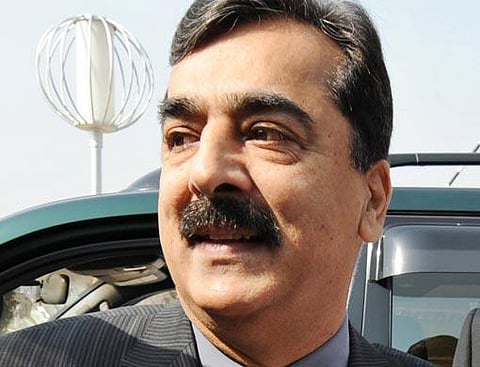Gilani takes responsibility
With the passage of the 18th Amendment, the PM must act in Pakistan's interest

Pakistan's politicians received a political shot in the arm with the recent passage of a constitutional amendment in the lower house of parliament curbing President Asif Ali Zardari's powers, which he inherited from former military ruler Pervez Musharraf.
The 18th Amendment was passed by members of the parliamentary committee, which decided to address the malaise created by Musharraf's 17th Amendment.
The amendment transfers power from the president to Prime Minister Yousuf Raza Gilani, who now has the ability to dismiss Zardari.
By acquiescing to the reforms, Zardari has turned the tide in his favour; there is now more sympathy for him.
Though Zardari's post is now purely ceremonial, he still commands a strong power base in the ruling Pakistan Peoples Party (PPP), which he heads as co-chairman. Zardari will still wield considerable influence over the government. Furthermore, Gilani is a loyal PPP member and a strong supporter of the president.
However, the PPP needs to hold party elections so that the reins of leadership are not held by a single political dynasty. Also, expect the party's elected parliamentarians to want to vote according to their conscience, rather than blindly following the party's diktats.
The leader of the opposition Pakistan Muslim League (Nawaz) party, Nawaz Sharif, had criticised Zardari for clinging on to the powers he inherited. The president's acquiescence augurs well for improved relations between the two, and also for the political system often gridlocked because of the two parties' power struggles.
The amendment also provides for the establishment of a new commission, headed by the chief justice. This body will select supreme court judges who were, formerly, selected by the president in consultation with the chief justice.
Resolve
Pakistani politicians and Gilani in particular now have a special responsibility to the Constitution and the nation, and must demonstrate their resolve to strengthen democratic structures, allowing the parliamentary opposition to maintain checks and balances.
Since its birth, Pakistan has rarely seen any good governance by its civilian and military rulers, who have failed to provide a clean and incorruptible government. Corruption and the nebulous term "national interests" provided a pretext to the military in the past to overthrow elected governments. Indeed, one such coup ultimately resulted in the execution of an elected prime minister, Zulfikar Ali Bhutto, the father of the late Benazir Bhutto.
Gilani should instill a culture of good governance, which is badly needed in both domestic politics and also foreign relations. The Pakistani economy is weakening, industrial production is declining, and investor confidence is low.
History will judge Gilani by his endeavours to replace cronyism with meritocracy. He should pursue a long-term, all-inclusive policy aimed at pushing economic development and meeting the needs of the common man.
The 18th Amendment, which purports to give the provinces greater autonomy and decentralise authority and finances, will not by itself resolve Pakistan's chronic problems of inflation, power cuts, education, health care and rising unemployment — but it can strengthen the government's hands to tackle these problems.
Terrorism haunts Pakistan. Failure to slay this hydra could create a perennial crisis, possibly tempting the military to stage a coup. US Secretary of State Hillary Clinton, speaking on CBS' 60 Minutes, warned of "serious consequences" for Pakistan in the event of any links being established between it and attacks on US. That could sound the death knell for US aid for Pakistan.
Visionary Pakistani leaders could develop good relations with India, a market of 1.2 billion people. Many discerning and educated Pakistanis admit that their leaders have in the past constantly fanned the fires of hatred and resentment against India.
Pakistan needs to dismantle the terrorist network on its soil and stop attacks emanating from or planned and executed by elements in Pakistan. The country faces a grim prospect if the 18th Amendment powers vested in Gilani and his government are not properly used.
Manik Mehta is a commentator on Asian affairs.
Sign up for the Daily Briefing
Get the latest news and updates straight to your inbox



